October 27, 2016
Tristan Reynolds ’19 sits down with Transylvania political science professor Don Dugi to discuss the 2016 presidential election.
To listen, click here.
October 27, 2016
Tristan Reynolds ’19 sits down with Transylvania political science professor Don Dugi to discuss the 2016 presidential election.
To listen, click here.
(Above: The man who cursed the Cubs, Billy Sianis, and his pet goat.)
Sports have deep roots in superstition, as interesting a connection as that may be. Athletes often put stock in rituals that some might deem somewhat silly. We’ve all heard our granddad who played peewee football with slightly archaic rules or our former high school hoops star aunt tell stories about superstitions they or their teammates had. Some of these stories can be rather spooky, while others are just down-right amusing to anyone listening on.
One sports tradition that is relevant currently is the application of curses, especially as a way of explaining teams who have failed to win a championships in a long time. In baseball, this phenomenon is especially common. It is fitting that the World Series takes place partly in October, because superstition is everywhere to be found in this year’s matchup between the Chicago Cubs and Cleveland Indians. The Cubs have failed to win the World Series since 1908, but their curse–the Curse of the Billy Goat–was not extant until 1945 when Billy Sianis was asked to leave a World Series game vs. the Detroit Tigers because his pet goat’s smell offended other fans. In response, Sianis placed a curse on his formerly favorite team, one which they have suffered from until at least 2016. However, the Cubs are looking to “reverse the curse” this year, as they play in the World Series against another team who have had a curse placed on them. According to some Cleveland Indians fans, the Curse of Rocky Colavito, onset by an unpopular trade involving the titular athlete, has prevented the club from winning a World Series for the last 56 years.
Perhaps American football fans are more familair with the Madden Curse, supposedly responsible for the subsequent decline in play or injury of the featured cover athlete, a trend that has been observed in years prior.
On a lighter note, pre-game rituals are a part of many athletes’ mantra, and they tend to invade every sport in some form or another. Michael Jordan always wore North Carolina (his alma mater) shorts under his Chicago Bulls shorts, and Corey Perry of the NHL’s Anaheim Ducks attributes some of his success to an eight-step ritual he completes before every game.
Of course, superstition is present among Transy’s student-athletes as well. First-year lacrosse player Katie Smith said, “I have always worn my hair in a braid during games. I guess since it is a familiar feeling, it helps calm me and makes it really feel like I’m in the game.”
Muhlenberg County High School athletic director Jerry Hancock recalled some habits of his playing and coaching days: “I would eat a grilled chicken sandwich before every single game when I was playing, and when I was coaching, I always wore the same red sportscoat with a ‘Takin’ Care of Business’ pin I got at Elvis’s Graceland. Regardless of whether I was playing or coaching, I made sure to use the far left urinal before the game began.”
Both of the superstitious athletes touched on the consistency of their respective rituals providing a sense of calmness for the game.
In contrast, Transy sophomore golf player Jenna Soderling said, “I don’t like to rely on superstition when I’m playing golf at all. I work really hard at my game, and I prefer to trust the practice I put in.”
In reality, there is no way to verify any superstition associated with sports, but it is nonetheless a fun and sometimes spooky topic to discuss among athletes.
On Tuesday, Oct. 26, faculty members Dr. Larry Barnes, Brittany Benningfield, Angela Eaton, Dr. Daniel Koehn, Dr. Timothy Polashek, Dr. Barbara J. Rogers, Zoé Strecker, and Dr. Loren Tice, along with Dr. Polashek’s brother Matthew Polashek performed and displayed original art.
The first piece displayed was Strecker’s “Pine Mountain Forest Portal,” a video animation projected onto a screen in on the stage of Carrick. Originally designed for the apse spaces of Christ Cathedral, where it was first debuted. Strecker’s piece reflected what looks like a kaleidoscope filled with colors from photos and videos of the old growth forests on Pine Mountain in southeastern Kentucky. Shaped as a mandala, Strecker’s piece plays a reflection to the mountain area and all it’s wildlife and all of it’s diverse and natural life. Dr. Polashek’s piece, “A Prayer For Our Earth: Pine Mountain” also tributes Pine Mountain and the conservancy of the area. Set in the middle of the stage was a small stand holding Pope Francis’ “Prayer for Our Earth” illuminated by a warm lamp shining down on it. Polashek recorded sounds from the top of Pine Mountain and also his daughter reciting the prayer. Together he composed these recordings into an emotional piece relaying the importance of our earth and it’s need for our care. With the music purple, blue, green, and red lights illuminated the back drop of the stage and moved along with Polashek’s composition while the lamp dimmed and raised it’s light with the volume of thematic. Together each piece of artwork presented the audience with a captivating tribute to the Pine Mountain Area.
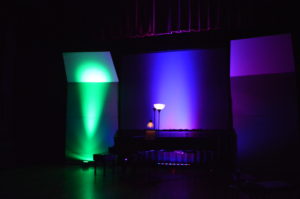
Polashek presented another composition, “Garden Rain” which Angela Eaton played on the piano. The melodic tune carried softly on the piano, putting the audience into a melancholic trance as Eaton’s hands danced across the keys. Polashek wrote the piece in dedication to his grandparents: Rosaline Polashek, C. Robert Pedersen, and Elizabeth Pedersen, “the latter who passed away while I was editing the recorded takes of Garden Rain for release on my Wood and Wire CD,” Polashek wrote in his description of the piece. On piano after Eaton was Dr. Barbara Rogers who performed four original compositions from a set of songs she titled “Maine Musings.” Rogers chose to accompany poems written by her great-aunt Ramona Carle Woodbury for a small volume titled Along the St. George’s. Singing each piece was Ms. Brittany Benningfield and Dr. Daniel Koehn. Benningfield sang of a wish for summer to remain and in another song of a cat’s devotion to its naps. Koehn’s voice carried the story of a misfit grandfather who never lived to see his work be revered and his second song, the beauty of the Earth. Roger’s piano brought the anecdotes to life with emotion and passion for each tale.
Dr. Larry Barnes was the next to bring technology back to the stage with his piece “Max Does Tai Chi 24” which combines two of his passions–Tai Chi and computer programming. Barnes, who earned a black belt from grandmaster Sin The in 2012, performed Tai Chi 24 the first form that a student will learn in front of a camera that monitored his movements. Each movement of Barnes’ controlled the instrumentation of the music playing, which in turn created a completely unique and original composition. To put Barnes into a meditative state, a drone continuously played with the music and carried his movements. Moved by the energy of his movement, Barnes shook from his feet with the energy flowing through his body. Something that he said before his performance is not his own doing, but caused by the energy that Tai Chi builds.
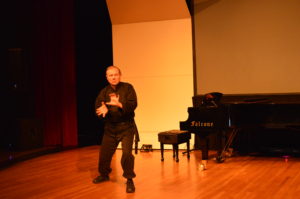
After his Tai Chi performance, Barnes performed his composition “Wander Fantasy: Hibernia” on piano. The piece was inspired from the area of Hibernia, referred to as “the most hideous land with the foulest weather, densest terrain, and the most barbaric, primitive race of people.” Because of this the area was left to maintain its own culture and music, which preserved the sean-nos’ style of singing, springy and highly-adorned songs about love and trouble, sung in Gaelic. Barnes’ piece, although lacking words, did not lack emotion within its sounds. The piece showed Barnes’ creativity and dedication to the creation of music. Following Barnes on the piano was Eaton and Dr. Loren Tice who debuted a piece called “The Heist,” composed by Dr. Polashek for two people to play as a duet. Sounding like organized chaos, the piece was hard to wrap your head around as Eaton’s and Tice’s hands beat across the keys, displaying styles of many different genres, shifting in rhythm, cadence, and key.
Dr. Polashek and his brother Matthew Polashek ended the show with two different electronic pieces. “Warp Speed”, a piece played on the saxophone by Matthew was manipulated and warped electronically as it was played. Matthew controlled the electronic component of his piece with three pedals underneath his feet, creating a sound more alien-like than that of a saxophone. Dr. Timothy Polashek then took the stage with his brother and performed their piece titled “Bluetooth Rave,” where the two created a “jam session” controlled by Timothy Polashek’s Wii remote and a double bass bow with attached sensors to monitor his movement, while Matthew Polashek played an electronic wind instrument. The two created sounds that are not expected to come from a collegiant theater, but from an electronic music festival. The brother’s enjoyed themselves while playing together and interacted well as their unorthodox instruments came to life.
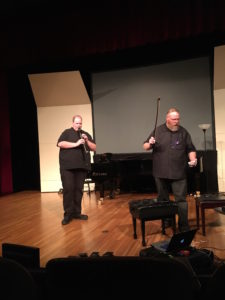
331 North Broadway: you might know it as the International House, or as the house where The Rambler’s editor-in-chief lives. Or, you might not know the house at all.

331 is located right on Broadway, next door to Forrer Hall. As of last year, it was no longer called the International House, because the language learning requirement no longer applied. It contains four living units, each housing four people.
One day this summer, one of my roommates sent a group-text, and I’ll paraphrase: “I was doing some research on our house, and found out it used to be a black college!”
A conversation about ghosts ensued, but my curiosity was sparked in a way only a journalist’s mind would be. Was this true? How old is our house, anyway? Who used to live here?
I decided to pursue these questions and research the history of the house at 331 North Broadway. What followed was an action-packed trek through layers of Lexington history, filled with cemetery hunts, archive searches and cold phone calls to non-existent lawyers. This is the story of my search, and the fascinating history it revealed about the house, the Northside neighborhood, and even Transylvania itself.
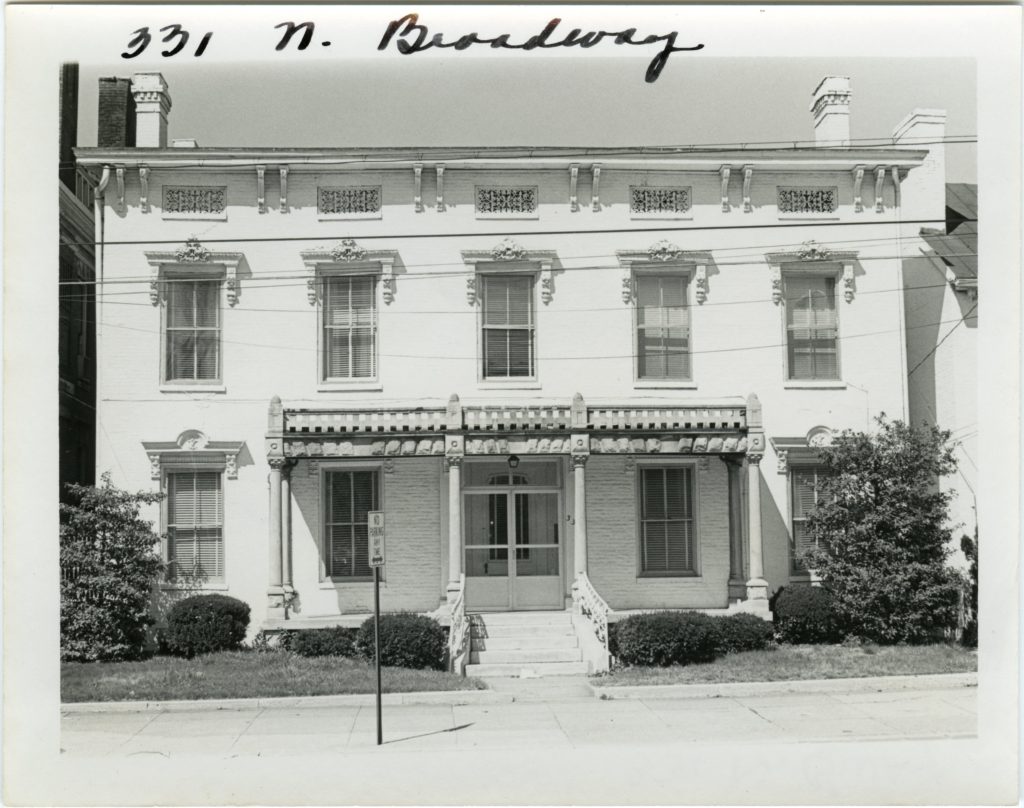
First searches, first residents
I started where any millennial might: typing “331 North Broadway Lexington history” into a search bar.
Through a helpful online resource from the Northside Neighborhood Association, and from Kentucky historian C. Frank Dunn’s book ‘Old Houses of Lexington,’ I found out that 331 was built in 1841 “by and for” a man named Perry W. Gaugh.
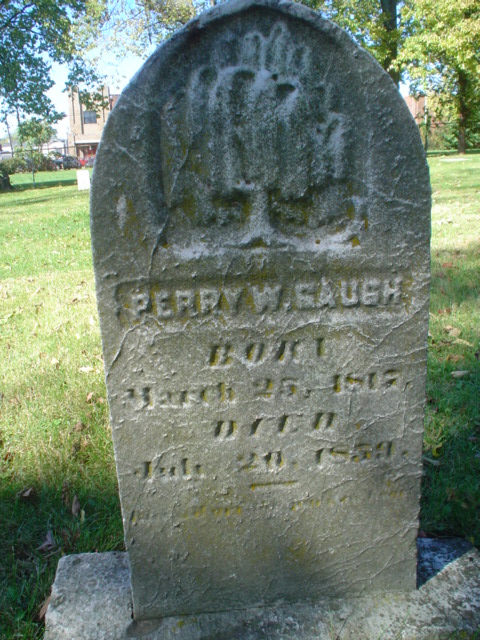
Gaugh was a carpenter by trade, and designed the whole house himself in the Greek Revival style popular in the antebellum time period. His family had apparently lived in Lexington for a while: his father, called the “old house-joiner,” was Michael Gaugh, a business partner of the architect and Maryland native Captain Mathias Shryock. Perry Gaugh bought the land for the house from Cincinnatus Shryock, Mathias’ son, who was also a well-known architect.
If the Shryock family name sounds familiar to you, it’s probably because you know the name of Gideon Shryock, who designed and rebuilt Old Morrison after it was destroyed by fire. Gideon was Cincinnatus’s older brother. He was the third child of Mathias and his wife Mary, who settled in Lexington in the late 1780s.

The Shryock family home used to be located on the land where Transylvania University sits now. The Gaugh and Shryock families were apparently very close. For example, Mary Shryock’s maiden name is Gaugh. Perhaps she was Michael’s sister – but I had to resist digging too deeply into family trees. The family connections in historic North Lexington are endless.
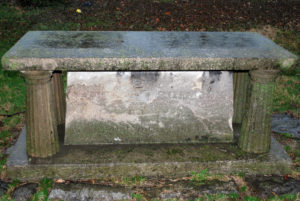
Based on the snippet from Dunn’s ‘Old Houses,’ in 1853 the house passed to a Lexington merchant named Leonard Taylor, who granted it to his daughter, Mrs. Mary A. Schoonmaker. But there was a problem: Mary A. Schoonmaker was nowhere to be found.
According to Find A Grave – a surprisingly useful tool throughout this search – Leonard had a sister named Mary Green, and a daughter named Mary Spencer, but “Schoonmaker” appears nowhere.
I was also at the end of the deed chain. Dunn’s book gave no ownership information past 1853. I thought to myself, “Well, I could settle for what I found, or I could go all out.” Guess what I chose?
City Directories
I sent a short email to the folks in the Kentucky Room at the Lexington Public Library, asking for any information they had on the house’s ownership after Leonard Taylor. Their email reference librarian, JP, emailed me right back with more than enough information from the city directories archived in the room. Sure enough, a ‘Mary A. Schoonmaker’ had never been listed at the house’s address.
According to the directories, Mr. Taylor lived in the “house west side Broadway between 3d and 4th” until as late as 1865. This makes sense, because this is the year he died. His widow, Ann, is listed at the address – now numbered “202” – as late as 1878. This also makes sense; Ann Taylor died in 1879, and there is no “Taylor” on the next directory listing in 1881.
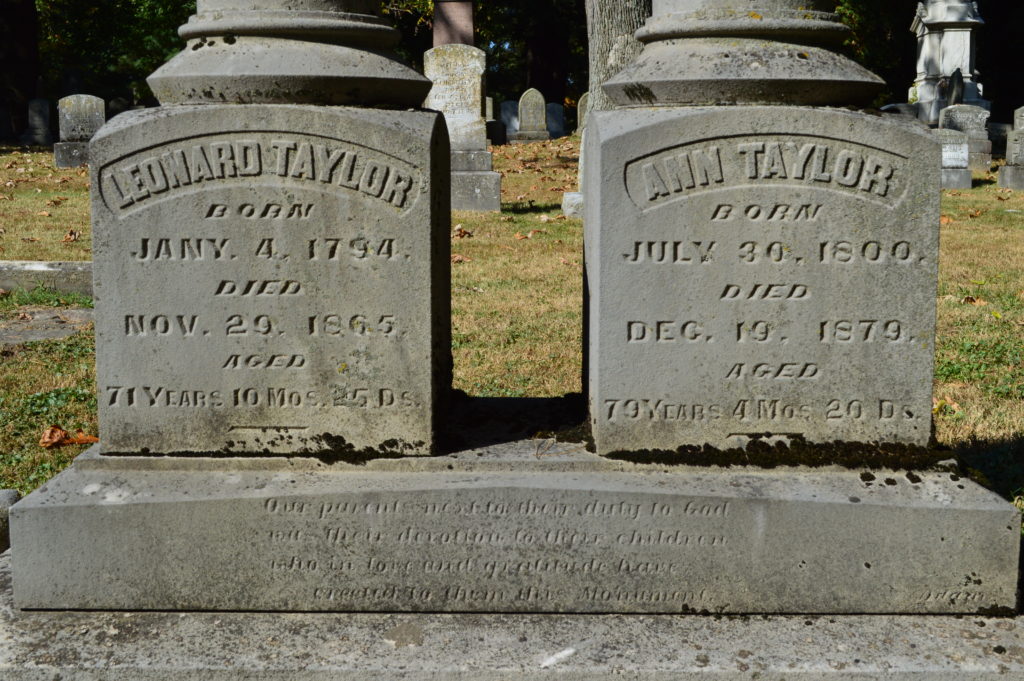
The next directory record comes in 1887, when the house number is now “165” and a man named J.M. Kimbrough lives there.
According to the website of the Lexington History Museum, Kimbrough moved to Lexington in 1879 (in his late 20’s) to become manager of the Ashland Distillery. He stayed manager until he died at age 39, of typhoid fever, in 1890.
Kimbrough was active in the Lexington community. He helped found the Chamber of Commerce, served on City Council and, interestingly, was appointed a director of the Eastern Kentucky Lunatic Asylum a couple blocks north of 331.
Kimbrough may have risen further in Lexington government ranks were it not for his unexpected early death. I’ll admit, I was a little sad when I realized what a short life he’d lived.
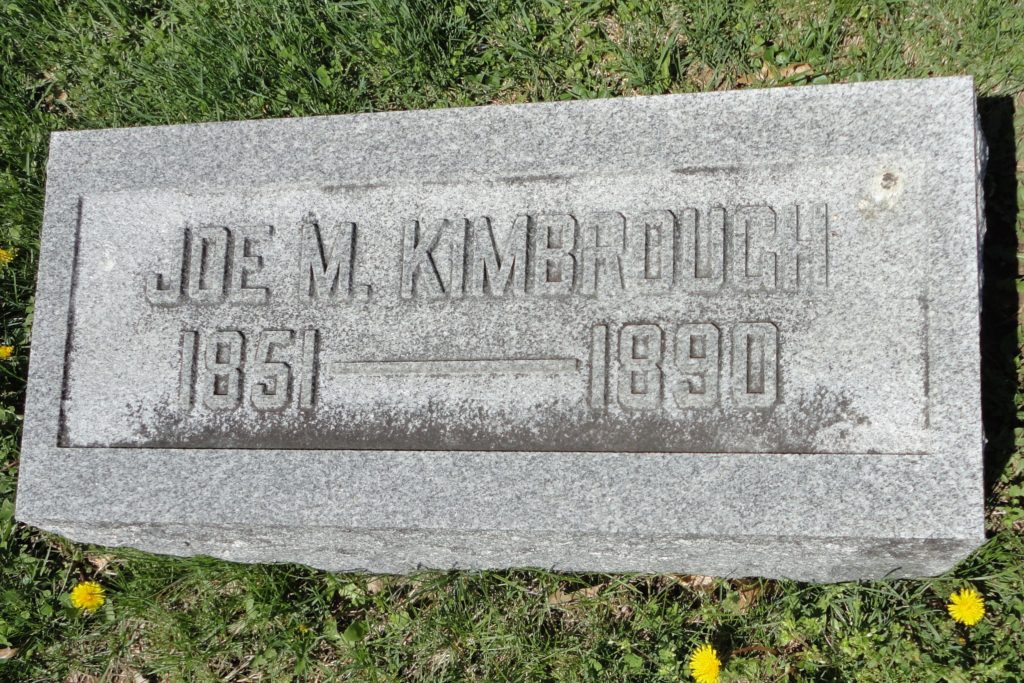
The 1893 directory lists a man named T.L. Hocker at 165. Tillman Logan Hocker was mentioned in one place on the Lexington History website, as the short-lived President of Headley & Peck Distilling Company, Inc. He probably got the job from his father, James Hocker, one of Headley’s banking partners.
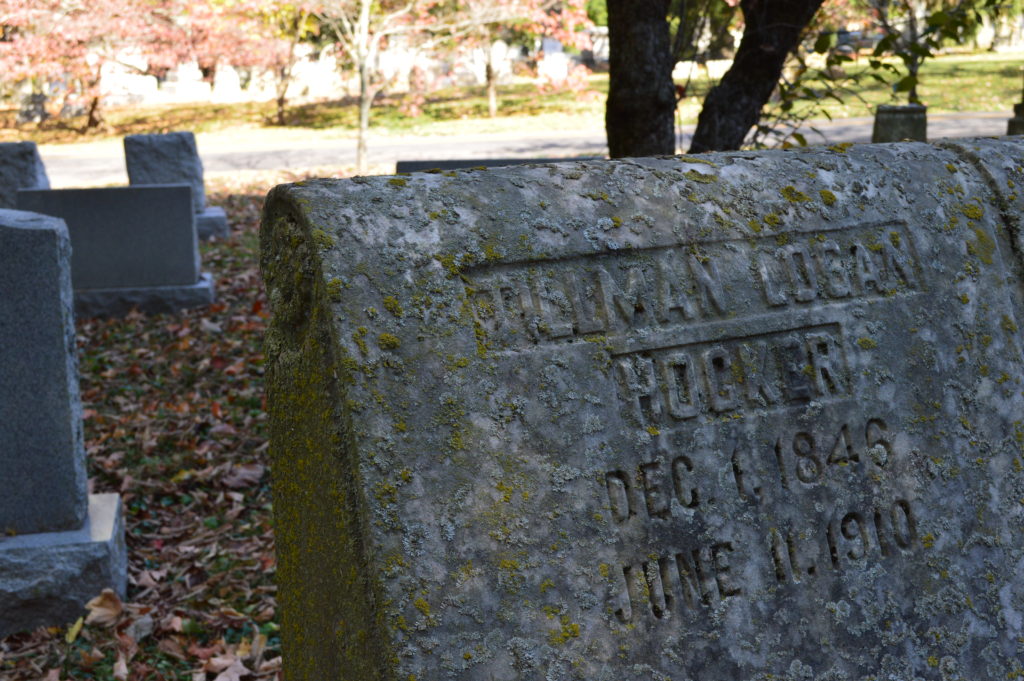
He became president in 1891, and they did two seasons of brewing. Then the Panic of 1893 happened. Hocker resigned on New Year’s Day the following year because they were unable to pay his salary.
Not shockingly, the next year, 1895, lists a Dr. D.A. Coyle at the 165 address. Coyle appears in the next and final Kentucky Room directory in 1902. The directory states the following about that year:
“In the spring of 1901 the City Council passed an ordinance authorizing the marking of all streets by suitable metallic signs at the corners and ordered the re-numbering of all buildings throughout the city on the plan in vogue in the principal cities of the country…and is commonly called the ‘Pennsylvania’ plan.”
Thus, 165 became 331. This change is fortuitously noted, putting “165” in parentheses after Coyle’s listing.
JP’s email was an excellent starting point, but now I was left with a few gaps: the resident from 1879-1887 and the residents after 1902. I knew I had to get away from the computer screen if I wanted to get a complete picture.
Gathering documents
One Sunday, I walked over to the public library to visit the Kentucky Room in person. One of the workers there, David, pointed me in a couple directions.
First, I was introduced to the paper archives: the directories JP had perused for me, the Sanborn fire maps, history books like Dunn’s. Then, he showed me the Property Value Administration’s online archive search tool. But what was most helpful was his advice to go next door to the PVA itself. So, that’s where I went next.
After walking through a half-broken door, turning over my license to an old security guard and sticking a printed name badge to my shoulder, I was pointed to the sixth floor of the County Government Office. In a matter of minutes after arriving on the floor, a friendly employee had scanned and printed the deed transfer records for me from 1963 to 1991.
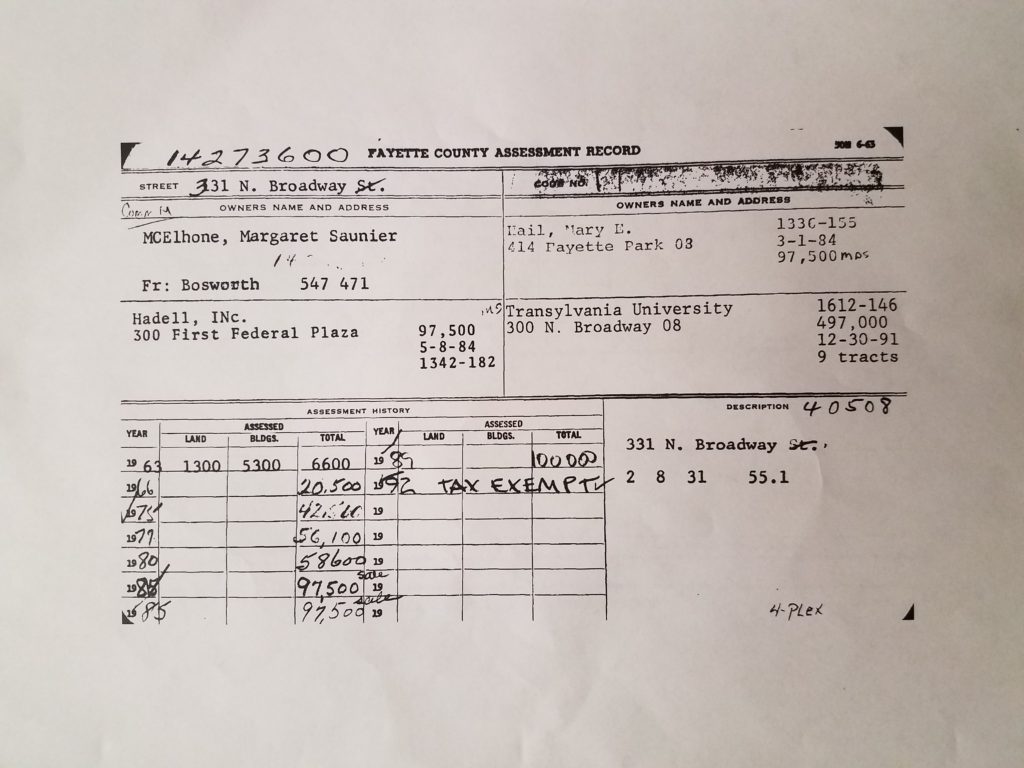
She suggested I try the Historical Preservation office on the second floor for more dated information. After creeping through some long, fluorescent, yellowed hallways, I found the cozy office tucked in a corner, decorated with framed photos of historic Lexington.
I waited for a distant voice to finish its phone call and then rang the bell for an employee. A tall man with a goatee came around the corner. I asked if he had information on the ownership of an old house, and he replied that their office doesn’t work with record-keeping so much as it works to fulfill Kentucky’s requirements under the National Historic Preservation Act.
I was about to thank him and walk away when he asked me what I was researching. After I explained a little further, he said he may have something useful. He walked back into a storage room and came back with a binder filled with historical inventory records compiled in 1984.
One of these documents was an individual inventory form for the “Perry W. Gaugh House.” One glance told me it would be useful. While he scanned the document for me, we discussed the emotional aspects of historical research.
“You get really invested in the lives of the people you read about,” he said, in paraphrase. “You get sad when something happens to them.”
“Yeah, you read that someone died of typhus when they were 40, and you say, ‘aw, that’s sad,'” I replied, in paraphrase, referring to Kimbrough.
I then thanked the employee and headed back to LexPub to start filling in the gaps.
Filling in the gaps
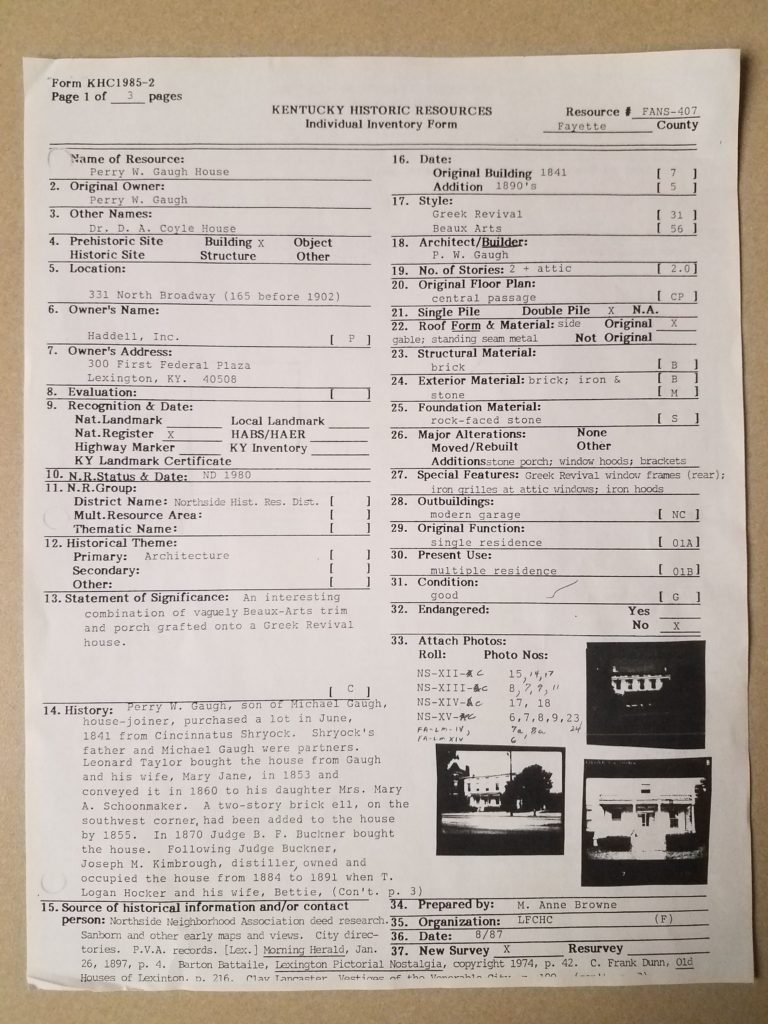
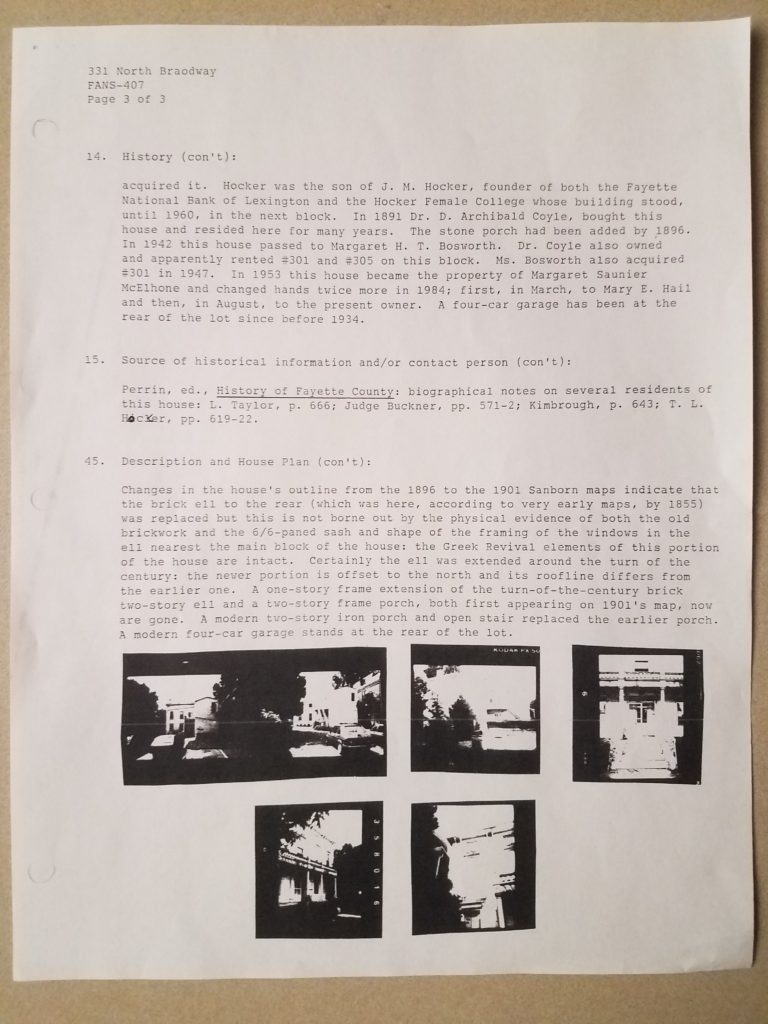
The inventory form turned out to be exactly what I needed to complete the history of the house’s ownership between 1853 and 1963. Section 14 of the form gave a very brief history of the house all the way from 1841 to 1984, sourced by the Northside Neighborhood Association’s deed research, the Sanborn maps, the city directories, PVA records, Dunn’s ‘Old Houses,’ and other sources I hadn’t yet come across.
The record confirms the house’s origins and also states that Leonard Taylor bought the house in 1853. However, instead of living in the house until his death in 1865, he had apparently “conveyed it in 1860 to his daughter Mrs. Mary A. Schoonmaker.” There was that name again.
According to Section 14, Ann Taylor did not live in the house until 1878 as the city directory information had led me to believe. Instead, Judge B. F. Buckner bought it in 1870. With the help of a few web searches and the Transy library’s copy of Patrick A. Lewis’s biography of Buckner – “For Slavery and Union” – I discovered that Benjamin Forsythe Buckner was an incredibly big name among Kentucky elites during and after the Civil War.
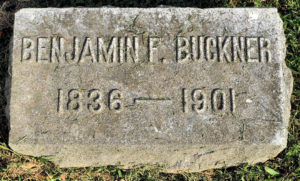
Buckner was a slave owner from Winchester, Kentucky, but fought for the Union during the Civil War. According to the synopsis of Lewis’s biography, he was “convinced that the Peculiar Institution could not survive a war for southern independence.” So, against the wishes of his Confederate-supporting fiancee Helen and her family, he enlisted in the Union infantry in 1861.
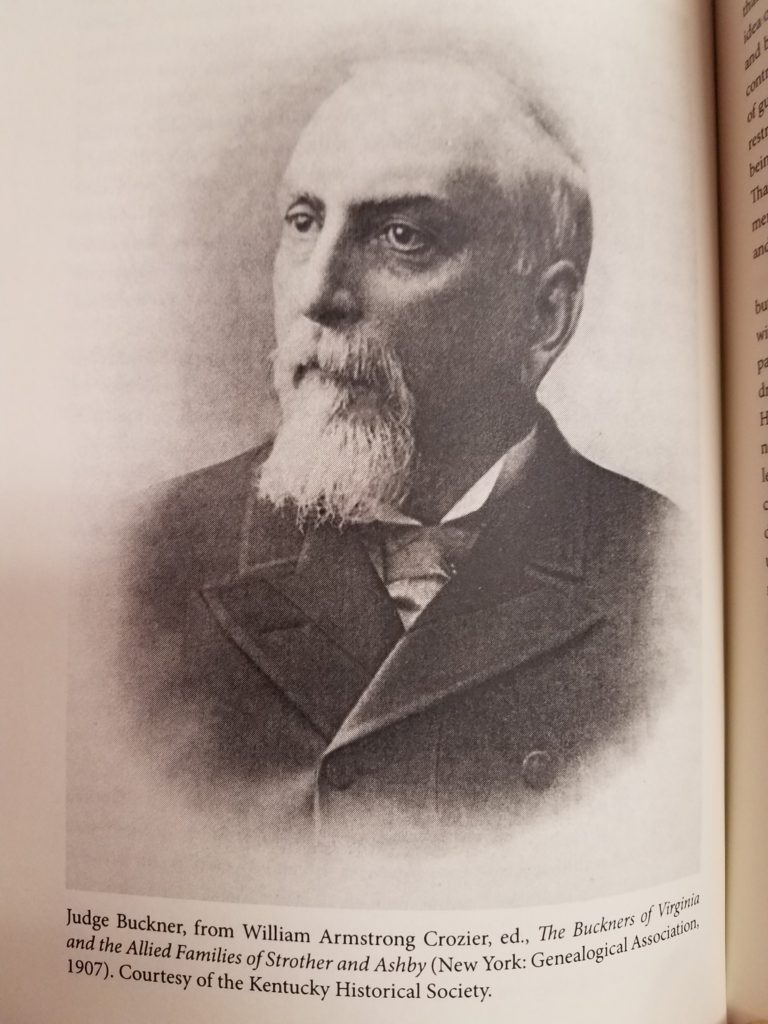
The Emancipation Proclamation crossed the line for Buckner, though, and he resigned his military post to go back to his law practice in Winchester. But according to Lewis’s text on page 163, “Buckner’s legal career had grown bigger than Winchester by 1870…It was a wise move, then, to relocate across the county line into Lexington.” Thus, putting two and two together, Judge Buckner must have relocated his wife and two daughters to the 165 house he bought in 1870.
So, if Buckner lived in the house starting in 1870, what of Ann Taylor, Leonard’s widow? Perhaps JP’s original email incorrectly stated that 202 was the same house as Perry W. Gaugh’s, and Ann was living in a 202 elsewhere. Perhaps Buckner’s house was still listed under Ann’s name for some reason. Or, perhaps the inventory form was incorrect. Either way, Lewis’s biography states that Buckner eventually retired to a quiet life in Winchester, leaving the house at some point for the next resident.
Kimbrough was the person who moved in next, living there from 1884 to 1891 according to the form. He was indeed followed by Hocker and his wife in 1891, and then by Dr. Coyle in 1891.
Wait – something was off. Both Hocker and Coyle couldn’t have acquired the house in 1891. Perhaps this was a typo on the form. It was at this point that I realized how exhausting historical research can be in a world of human error. Either way, Dr. D. Archibald Coyle was certainly the resident of 165 in 1895, and remained its resident through 1902, when the house became 331.
I learned little about Dr. Coyle, not even an obituary. This was such a shame, as in the past I have been able to find out so much about historical figures using online obituary archives. Normally, online genealogy resources such as Genealogy Bank have plenty of newspaper obituary articles that can be used for research purposes.
That being said, according to an inventory form I found, he lived in the house for a long time, and rented a couple other houses on the block. He passed away in 1837, and the house apparently wasn’t acquired again until 1942. It seems likely that Dr. Coyle lived in the house until his passing. Perhaps his is the ghost my roommates keep referencing.
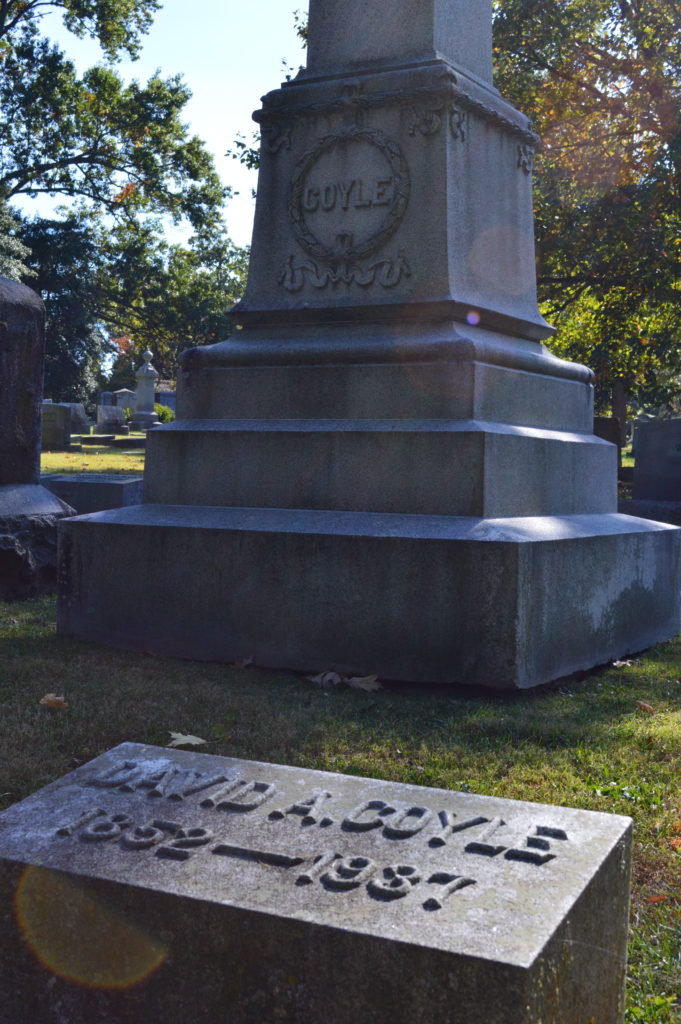
According to the form, “Margaret H. T. Bosworth” acquired 331 in 1942, succeeded by “Margaret Saunier McElhone” in 1953 and then “Mary E. Hail” in 1984. After this, the deed from the PVA notes that a company called “Hadell, Inc” acquired the house later in 1984 and remained its owner until Transylvania bought it in 1992. These names didn’t seem significant when I first read them. But I was about to get a lesson in making assumptions.
Hadell, Incorporated
Once again, it was back to searching the web. The first name that struck my curiosity was Hadell, Inc. What in the world was that? And why would a company buy a residential house?
An ad-ridden website called Bizapedia revealed that Hadell was listed as a for-profit corporation from February 1984 to October 1992. Its four principles were Homer A. Hail, J. C. Codell Jr., R Winn Turney and former Transylvania President Charles L. Shearer.
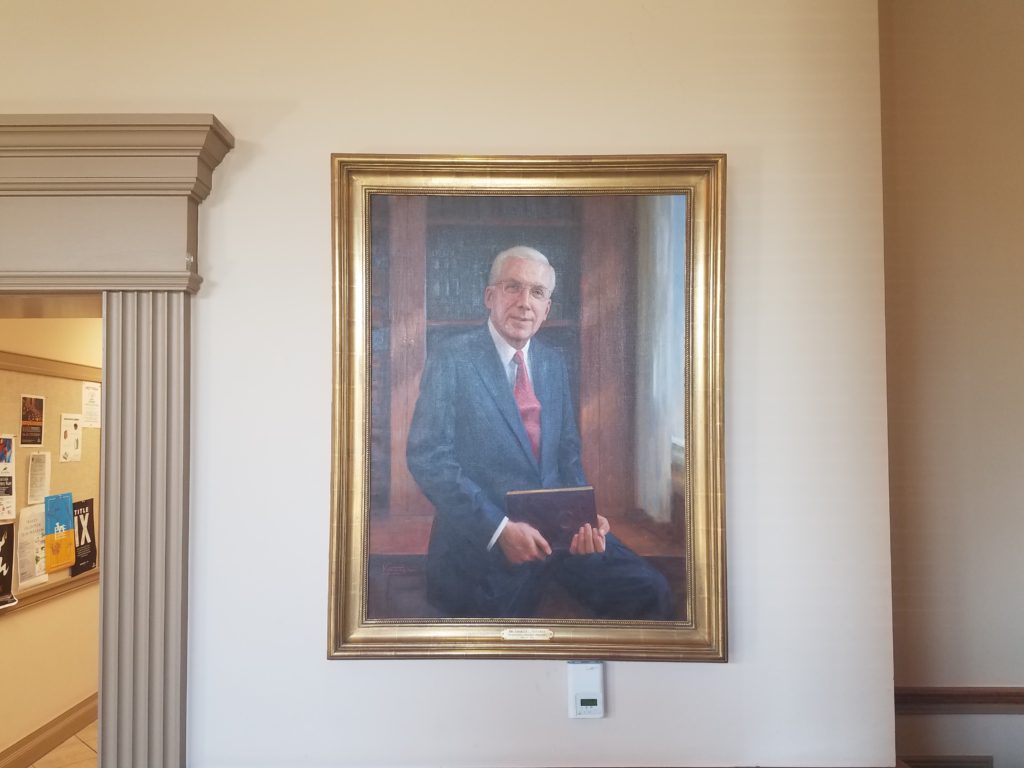
All I could find online were clues as to what exactly the purpose of Hadell was. I started by researching each of the principle organizers:
From these clues, I hypothesized the following: a brand new university president, a mortgage specialist, a construction company CEO and a corporate lawyer got together to purchase land and buildings on which to start Transy on a development spree. And, its name is a combination of two of its principles’ names: Hail and Codell. But I was still confused: Hadell was a for-profit business. So, where was the profit going? Or, was my question misguided?
Most importantly, why would this company buy the house? The house was purchased and sold in the same years that Hadell was incorporated and dissolved, so it seems plausible that the house was closely related to Hadell in some way. I pieced together more of this mystery later on.
Margaret, Margaret and Mary
The names of the three owners of the house from 1942-1984 weren’t engraved into history like many of their counterparts, but their recency only brought them more to life.
“Margaret H. T. Bosworth” is actually Margaret H. Y. (Helen Yundt) Bosworth, a New Orleans native and wife of Henry Muldrow Bosworth III. She acquired the house in 1942, but it’s unclear whether she actually lived there. Like Dr. Coyle, she rented out another house on the block. Her husband passed away in 1978 at the age of 58. Then comes the fact that startled me the most about Mrs. Bosworth: she passed away on Sunday, March 27, 2016. She passed away seven months ago. She was 94.
In a condolence on her Herald-Leader Obituary, a man named James Swisher of Lexington wrote, “Equitable agent in 1960’s. Pleasant memories.”
***
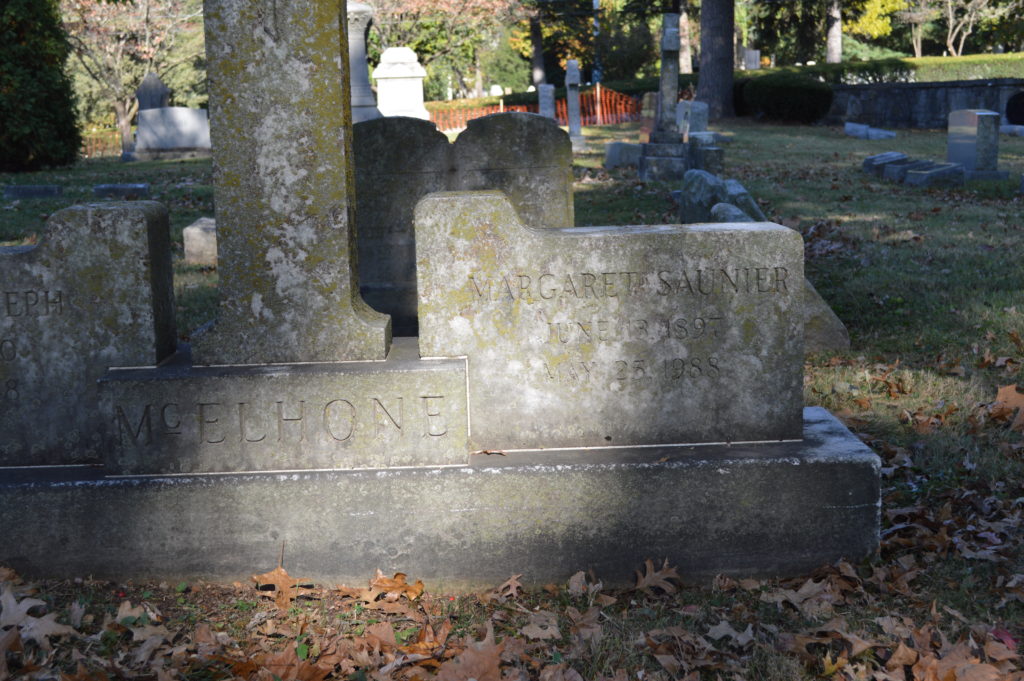
Margaret Saunier McElhone moved in in 1953 – 100 years after Leonard Taylor bought the house from Perry Gaugh. This was five years after the death of her husband, Andrew, whom she survived by 40 years to the age of 89. She passed away in 1988, four years after the house had been sold to Mary Hail.
Mary Ewing Hail was a short-lived tenant, however. According to Find A Grave, Mary’s full name is “Mary Ewing Turner Hail.” She was the wife of Homer Hail, one of the directors of Hadell. Interestingly, according to the deed from the PVA, the house was purchased in Mary’s name on March 1, 1884, and purchased in Hadell’s name on May 8, 1984. So, Hadell, Inc. bought the house from Homer’s wife after three months. This definitely couldn’t be a coincidence, but I was at a loss for how to proceed.
I soon discovered that there was much the websites and documents weren’t telling me. It was time to leave the map and get on the territory. Visiting the graves of Margaret, Margaret and Mary, as well as Homer, Archie and Logan, added the final pieces to the puzzle, and the final chapter to my search.
Cemetery Revelations
On an early Monday morning before my 9:30 class, I walked to the Lexington Cemetery office and asked for the locations of all the people I knew were buried there from Find A Grave. They were able to mark all five gravesites on a map.
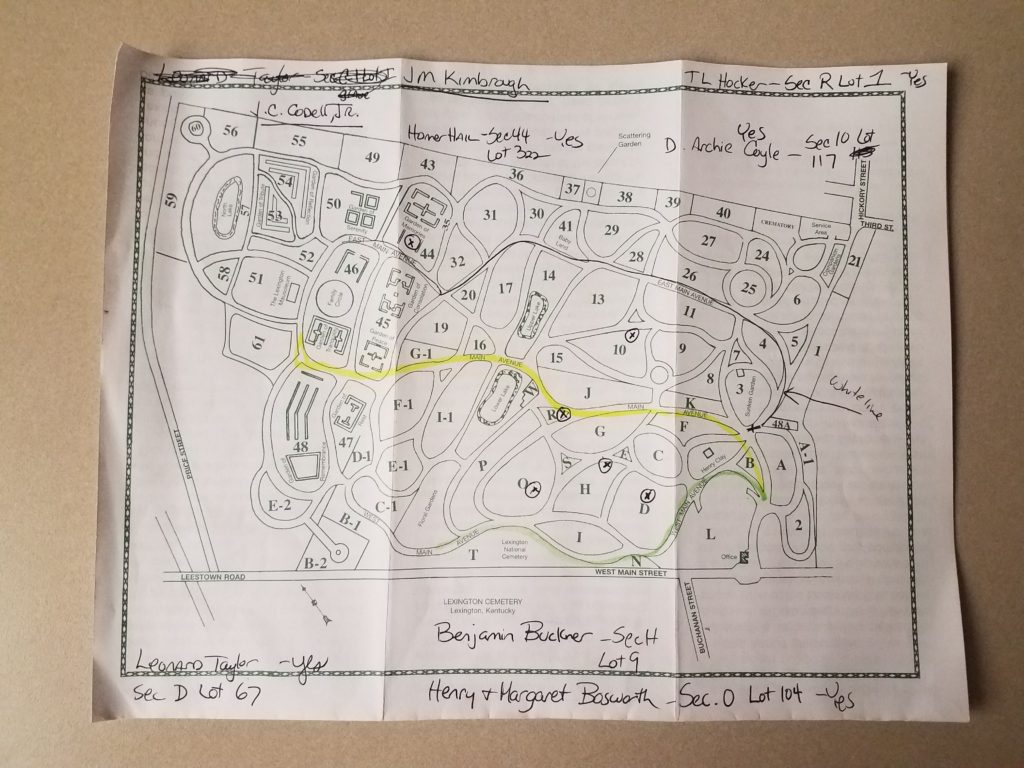
I was eager to get out and explore, but class bid me to take an Uber back to campus. Later that day, I grabbed the camera and some documents from the house and asked my roommate, junior Kacy Hines, to come along. This time, I drove. With map in Kacy’s hand and camera in mine, we embarked to find our deceased housemates.
First, we found T. Logan Hocker, buried by his wife. “Logan, my man!” I exclaimed. Turning to Kacy, I said, “This is more emotionally impactful than I thought it would be.”
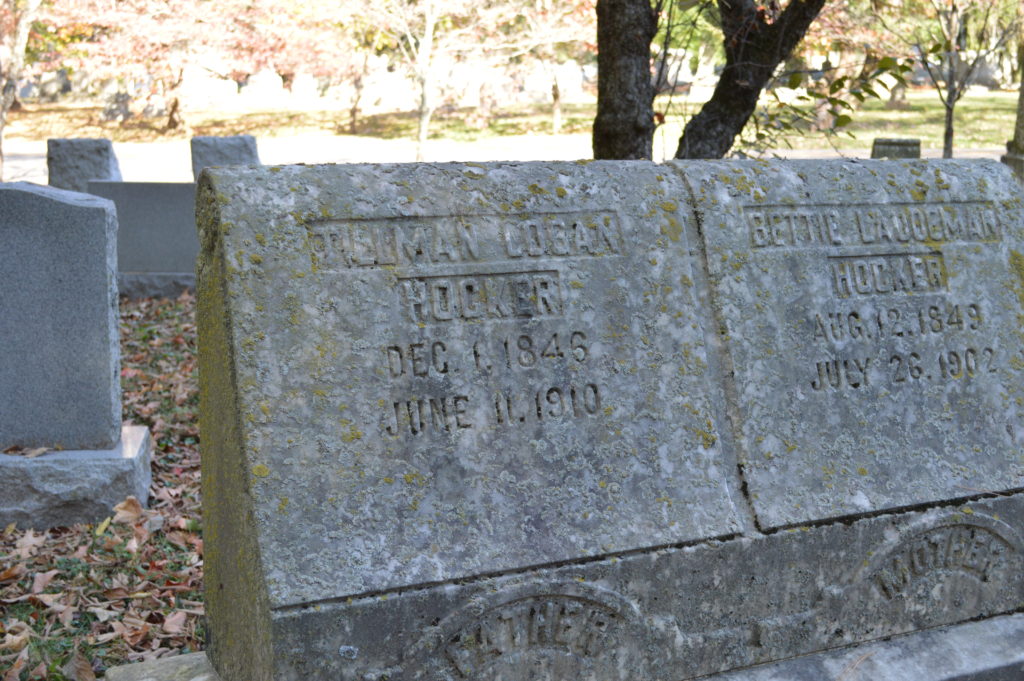
Next we found Mrs. Bosworth, buried beneath a shiny new stone next to her husband, a World War II veteran. I would’ve walked right past her had I not known her maiden name, Yundt, because “Margaret” apparently went by Helen.
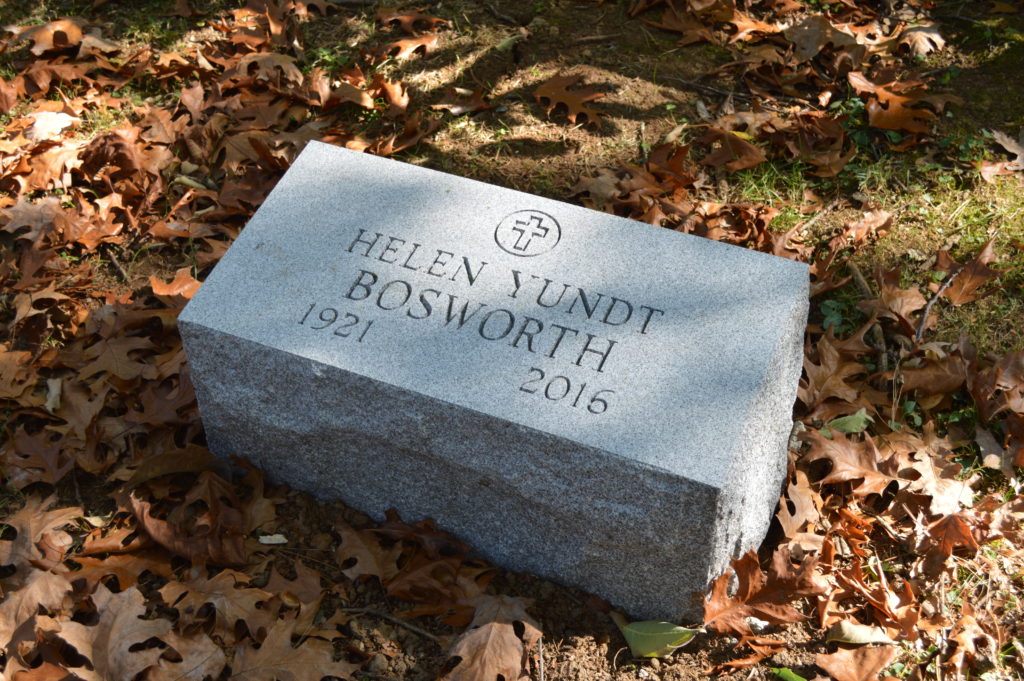
Kacy found it cute that the pair had matching symbols on their headstones. The difference in the age of headstones between husband and wife saddened me. It seems a common trope, the wife outliving the husband by many years. And she was buried less than a year ago – what closeness I felt. To think if we had done our research just a year ago, we might have interviewed her.
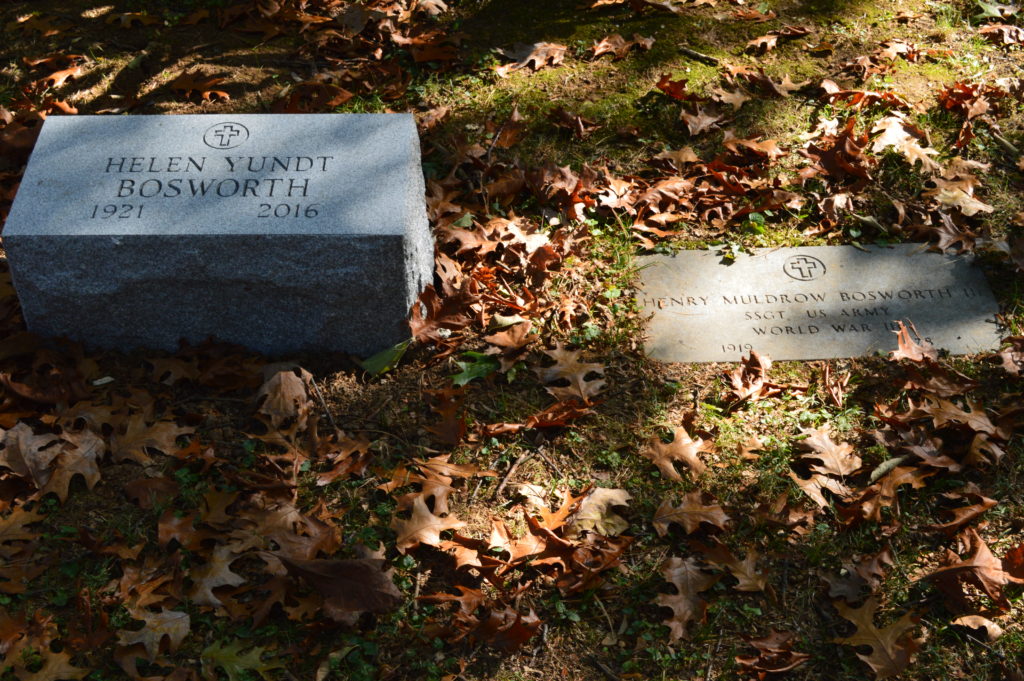
Next, Kacy and I successfully searched long and hard for Leonard Taylor and discovered a major piece of the puzzle. There were Schoonmakers buried among the Taylors.
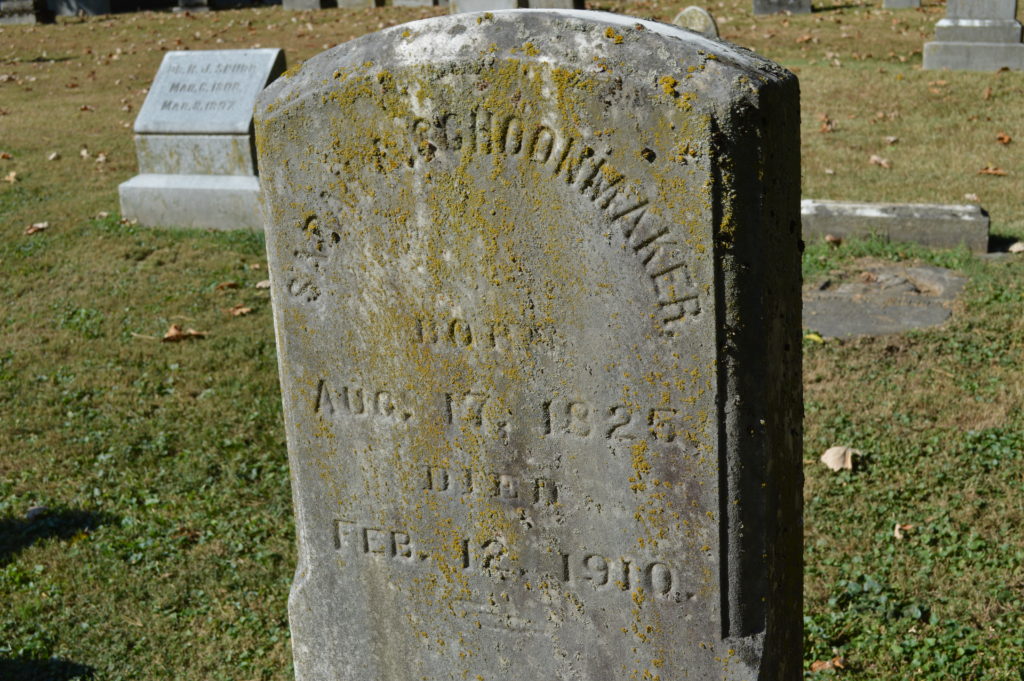
There was still no Mary A. Schoonmaker, only a Sarah A. and one other; however, Mary Spencer, Leonard’s daughter, was also buried here with her husband Wesley.
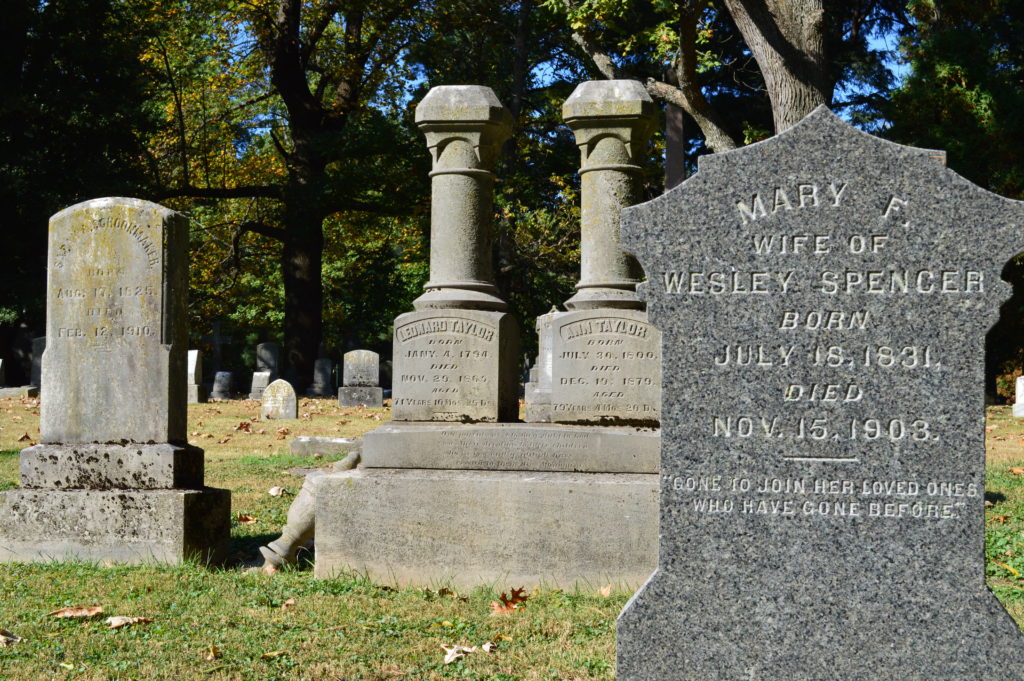
So, long story short, C. Frank Dunn seems to have been mistaken. The house was either conveyed to Mary Spencer, or to this mysterious Sarah A. Schoonmaker: not Mary A. Schoonmaker. I forgive him: siblings’ names are easy to confuse. But now, there’s a new mystery to solve.
After these three, we hopped back in my car and drove further into the cemetery to find Dr. Coyle and the Hails. As we paid our homage to Dr. Coyle, I mentioned that he was likely to have died in the house. “So you’re the ghost that’s messing with us, huh?” she asked, in paraphrase.
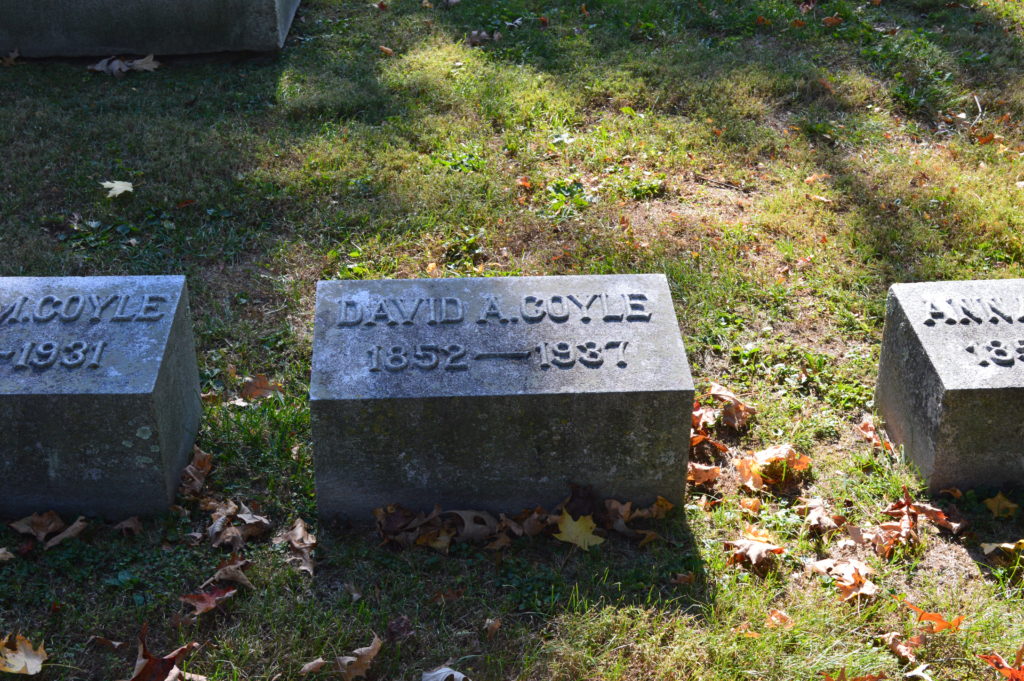
Lastly, we found the Hails. A large stone marked the family plot.
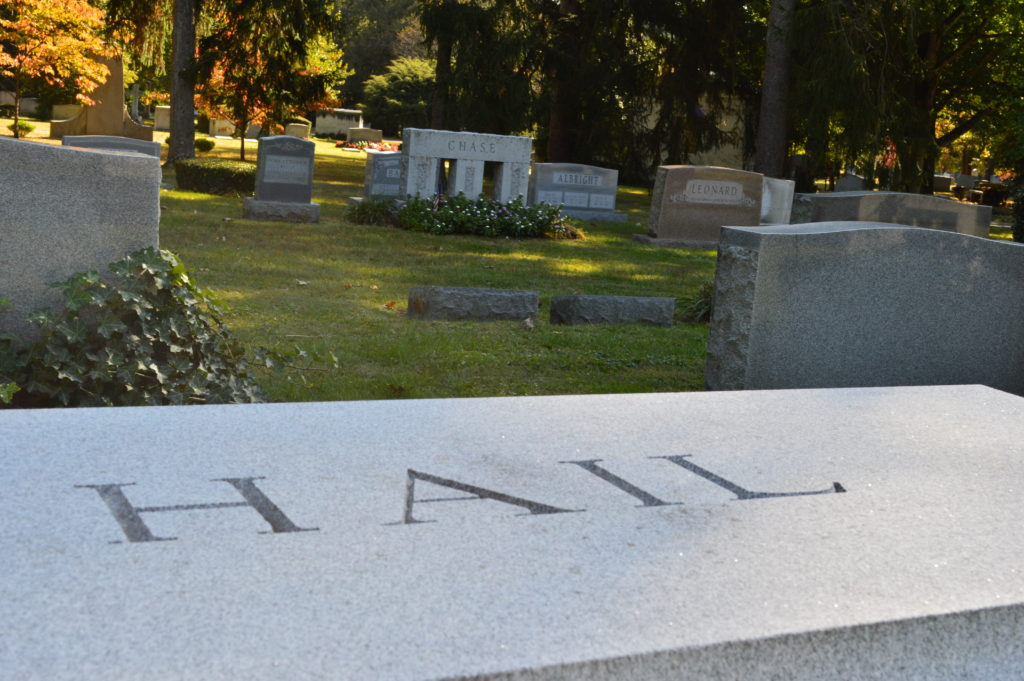
Below, I was greeted with yet another revelation. Remember “Mary Ewing Turner Hail” from the Find A Grave listing? This was a misspelling.
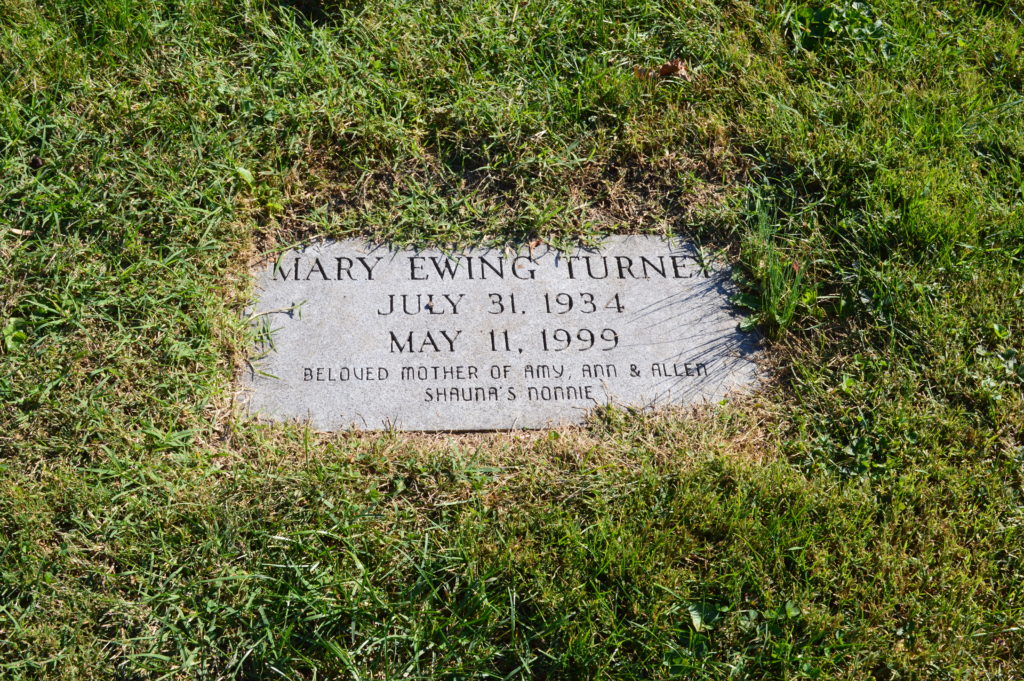
One of Mary’s names isn’t Turner, but Turney. Mary Hail was related to R Winn Turney, a principle of Hadell, Inc along with her husband, Homer. This reminded me of the closeness between the Gaugh and Shryock families. Mary Gaugh Shryock and Mary Ewing Turney Hail even had the same first name. Inter-family ties have clearly run strong in wealthy Lexington circles for a long time.
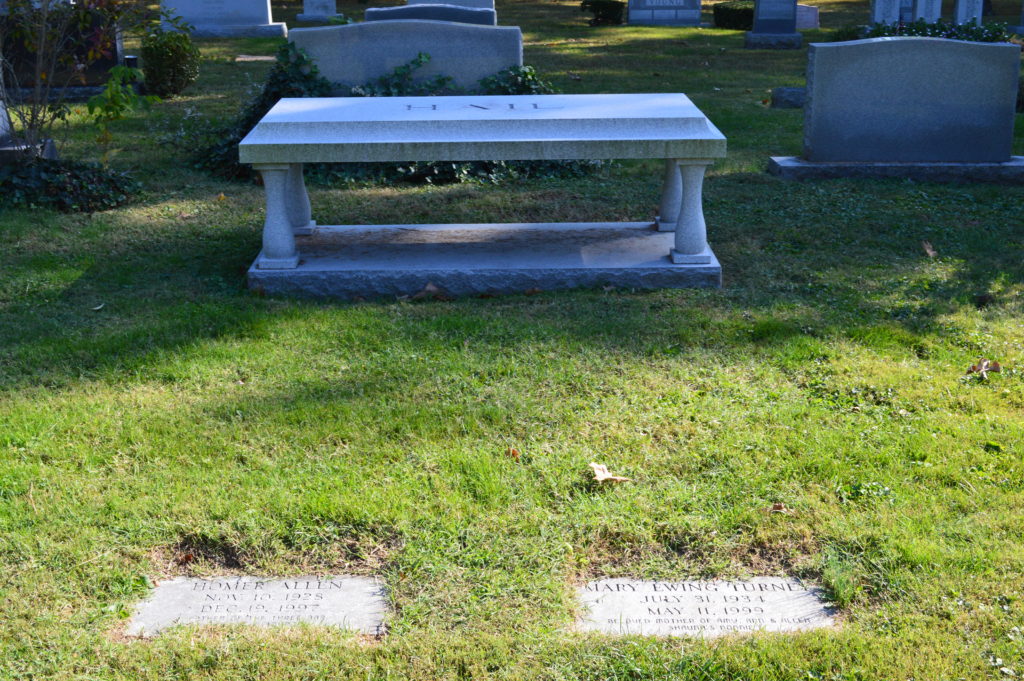
Before heading across Main Street to the Calvary Cemetery to find Mrs. McElhone’s burial place, Kacy and I stopped to rest by a lake. While there, I received a reply email from David O’Neill at the PVA. While he didn’t quite answer my inquiry about the purpose of Hadell and why they had bought the house – he sent me a link to a website I’d already raided for info – he did say that “Hadell is one of your holding companies.” According to a Google search, this means “a company created to buy and possess the shares of other companies, which it then controls.”
So, Hadell was likely formed to “hold” Transylvania’s investments, so that it could grow Transylvania’s endowment through stock shares. Smart move from Shearer, a brand new president with an economics background.
But that still left the question of why Homer’s wife bought the house in March of 1984. And why Hadell bought the house in 1984. And why Transylvania acquired the house the year Hadell dissolved. These are questions I pondered aloud as Kacy and I gazed out on the lake.
We saw a fish. We named it Hail.
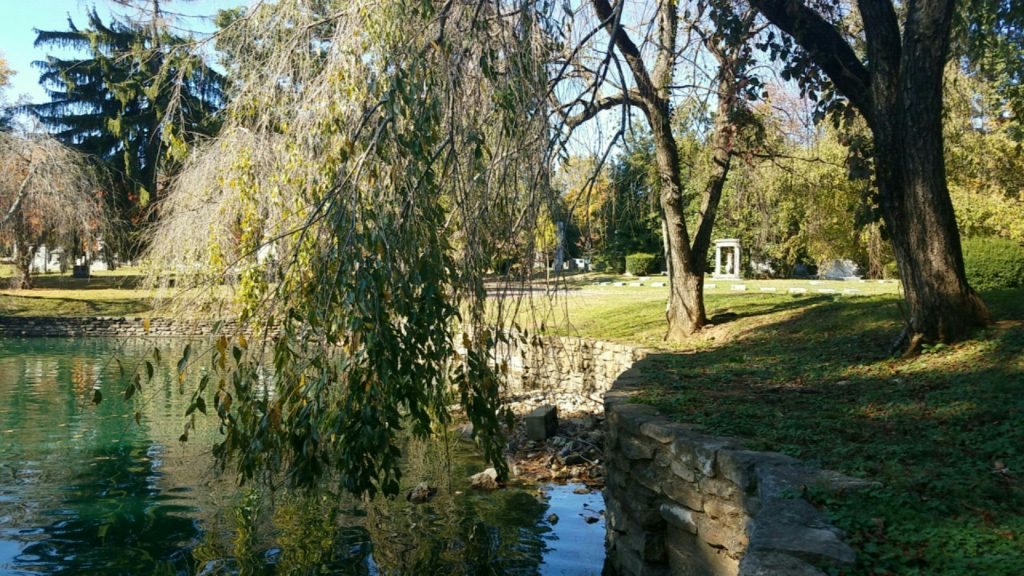
Echoes of history
On the drive back to 331 after visiting the site of Mrs. McElhone in Calvary Cemetery, I asked Kacy where she heard that 331 was an African-American college. We couldn’t find the original source, and I saw no evidence in my own digging that the house was ever an educational institution – except for the house’s tenure as a living-learning community for students of foreign languages.
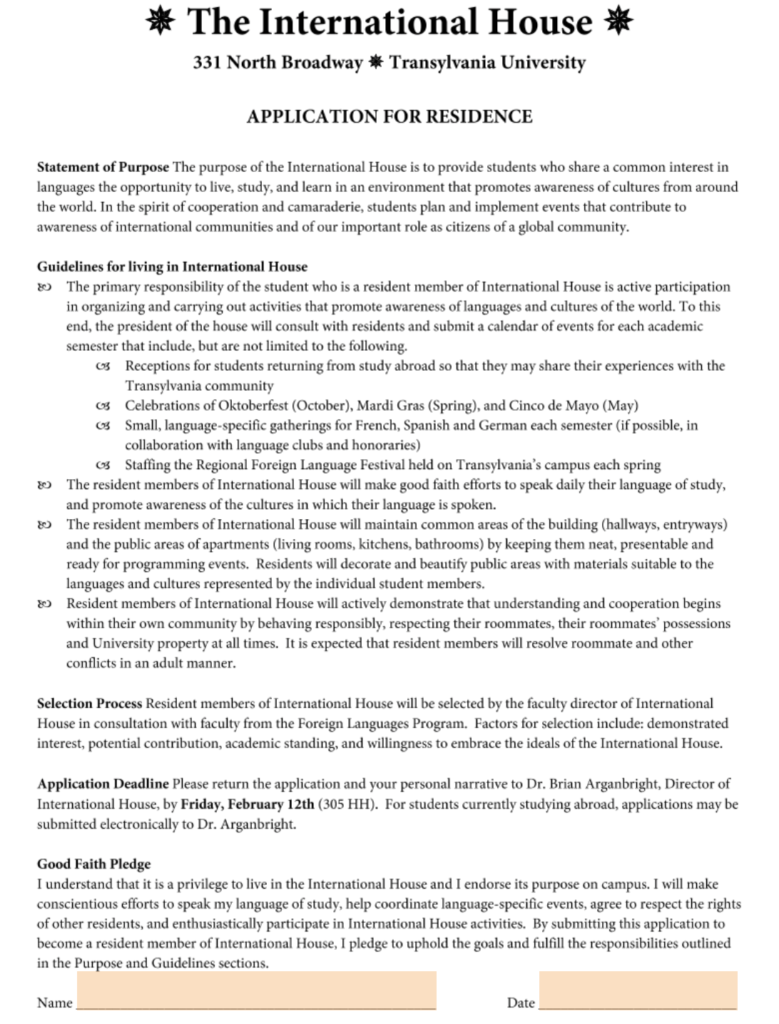
To complete the picture of Hadell, I attempted to call what I thought was the office of R Winn Turney, but the number went straight to some case management company. There are still questions I’d like to ask him about Hadell’s use of the house, and about his relationship to Mary E. Turney Hail.
Additionally, I spoke with President Seamus Carey’s Executive Assistant, Rachel Millard, who is helping me get in contact with Charles Shearer so he can provide more information on Hadell’s formation and relationship to the house. I’ll be sure to share my findings.
***
My goal throughout this search wasn’t to write a history paper. My goal wasn’t to come out of this with a “complete history of the 331 house.” My goal was to discover more about the people who lived in the house before me, and before my housemates.
So while I didn’t answer all of my questions or fill in all the gaps, I’m now more aware of the past’s reflection on the present. And I became more intrigued by Lexington history than I ever thought I would. I hope my adventure inspires others to discover the history surrounding them – quite literally – every day.
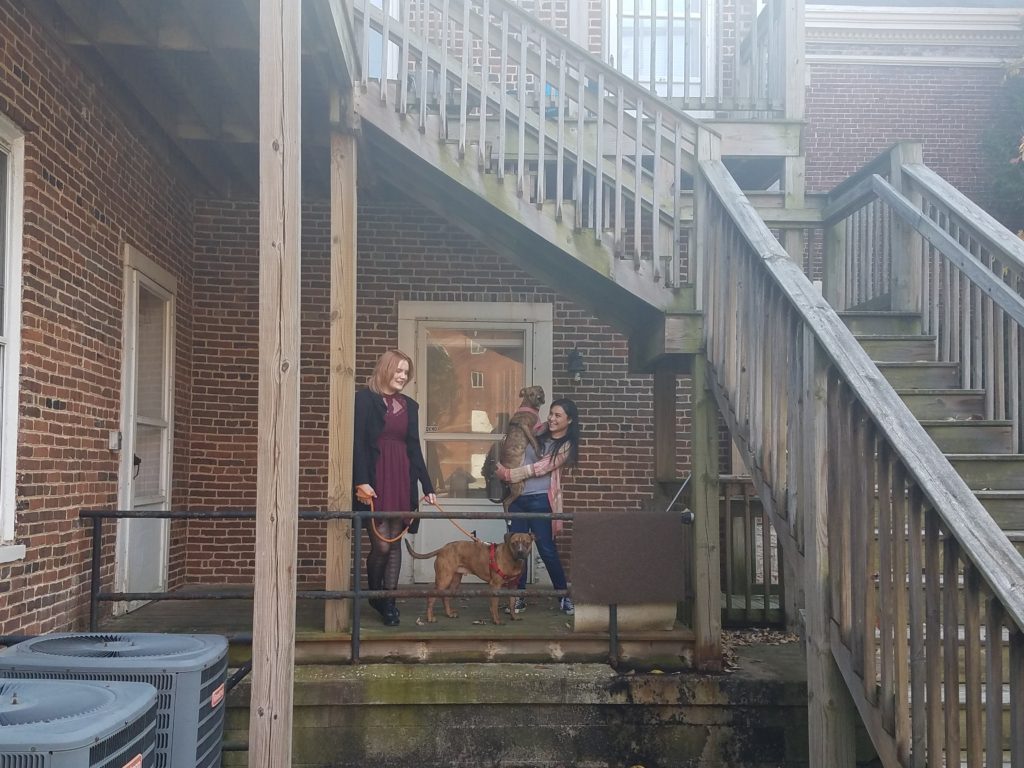
I’ve got to be honest with you. It took me a long time to get to a point where I was comfortable writing a column that makes a full-throated endorsement of Hillary Clinton. She wasn’t my candidate in 2008, and while I’ve always thought she did an admirable job as Secretary of State, I didn’t find her tenure at Foggy Bottom (or in the Senate) much more than above-average. But I’ve got to admit that she has won me over.
Not only have I been won over as a Clinton supporter, I’ve become genuinely convinced that, in this or any other election, Hillary Clinton would make a fantastic President of the United States. But, even as she’s poised to win the Presidency, this seems to be a bizarrely underrepresented opinion in the media and in political circles. I’ve got a few theories as to why that is, but this isn’t the place for them. Suffice it to say that I don’t think many people really recognize who Hillary Clinton is, or what and how she thinks.
But it’s time to recognize Hillary Clinton. It’s time to recognize both her accomplishments, and to recognize her as a person. For far too long in her public career Sec. Clinton has occupied a space in American politics that is defined by the fog surrounding her, and the mud and dust kicked up by both her opponents and her allies. When that fog is cleared away, then the case for electing Hillary Clinton as the President of the United States becomes obvious and pressing.
It’s time to recognize her accomplishments: Sec. Clinton has, over the course of her career, been a tireless advocate for women and children. Hillary Clinton (then Rodham) began her career advocating for children’s welfare at the Children’s Defense Fund. In the Bill Clinton administration, she worked to create the Children’s Health Insurance Program, which provides healthcare for young children and their mothers. Then Hillary Clinton went to China and declared the women’s rights are human rights, standing up to a Chinese administration that still demanded of women a draconian and tyrannical one-child policy. She will continue this emphasis on advocacy for women and children when in the White House. Her child care policy plan is focused on ensuring that working families are able to educate and care for children without spiraling into poverty. It is an extraordinarily ambitious plan, one which proposes that raising a family should not be a financial burden in the most prosperous nation on Earth. Hillary Clinton’s proposed tax credits and subsidies would cap the cost of childcare at 10% of a family’s income, when costs are often triple that, and frequently even 40% of a family’s income.
This focus will continue with Sec. Clinton’s college affordability plan. It would make public colleges and universities tuition-free for nearly 80% of students. Hillary Clinton’s plan would offer student loan forgiveness up to almost $18,000, when currently there are virtually no options to discharge bad student debt.
Sec. Clinton’s college affordability plan is part and parcel of her wider, wiser economic policy. She has called for infrastructure revitalization as part of a larger plan to create American jobs, for sensible immigration reform which includes a path to citizenship, and for the strengthening of financial protections for consumers to ensure that a repeat of the 2008 financial crisis does not occur.
All these positions speak to a simple fact about the kind of person Hillary Clinton is: she takes the issues seriously. She does her homework. She knows the issues in a level of detail that consistently surpasses not only other politicians, but the experts themselves. She is, simply put, the most well-versed and well-informed politician to seek the Presidency since John Quincy Adams. And she is well-informed because she listens to others, and she surrounds herself with an unprecedented number of policy experts.
This quality of actually listening to others is rare in a politician. We, as a nation, are not particularly used to accepting candidates who listen. We are used to politicians blustering and shaking their fists. The Republican candidate is doing so now. Sen. Sanders did so in the primary. We value candidates who can give a good speech, like Barack Obama; we don’t value candidates who listen. But Hillary Clinton listens—she knows that’s the best way to actually govern. It may not lead to an inspiring campaign, or wonderful speeches that can play on the six o’clock news. But being President isn’t about getting speeches on the news. It’s about implementing policies that will improve the lives of all Americans. To do that, you have to understand those policies. And to understand those policies, you have to listen. You cannot be afraid of other people’s opinions, even if you disagree with them.
That’s the kind of person Hillary Clinton is. She’s not afraid to listen, she not afraid to learn. She never had been. Yes, Hillary Clinton has made mistakes. But she’s consistently recognized her mistakes as such, and attempted to correct them. It’s unusual for a politician, I know. It can seem unsettling, to hear a politician admit that they made mistakes. It can make them seem untrustworthy, or corrupt. Both of those charges, and many more besides them, have been thrown at Hillary Clinton. And how has Hillary responded? By walking into the offices of her opponents and listening to their ideas. She did it in the Senate. And she’ll do it as President.
Sec. Clinton has been called divisive. There’s some truth to that. But stopping the story there obscures an important truth: Hillary has consistently worked to cross that divide, to build coalitions, and work with Americans of all persuasions to build a stronger America. It’s time we recognize that this work across the divisions of our country underlie all her numerous accomplishments. It’s time to recognize who Hillary Clinton is, what she has done, and what she will do as the next President of the United States of America.
Many seniors have started thinking about the job search process with graduation fast
approaching. The search for jobs can be overwhelming for those new to the process, so below are a few helpful tips to get you started.
1. “Network or Not Work”
Many have heard the call to network from Susan Rayer, but you may be confused on who you should reach out to. Networking should not only take place with close friends and relatives. Networking should extend to your professors, family friends, employers, and acquaintances. If you are having trouble making or identifying connections the Career Development Center can aid with this process through their resource of Transylvania Alumni.
2. Websites
There are many websites out there to help with the job search. Some of the top rated sites include Indeed, LinkUp, and SimplyHired. If you have a specific city in mind you can also look at their classified ads. For example, LeoList covers all of Canada and allows you to search for job ads by occupation and by province/city. Professors are a good resource to use as well because certain majors have websites that are more relevant to their field. Specifically, a Psychology major could look on Bluegrass.org for current mental health positions in Lexington. When it comes to your CV there are also websites for that. You can make it online on CV building websites, such as cvmaker.
3. Location
It can be hard to sift through job postings of a large geographic area, so make it a little easier to narrow the locations you are considering. If you like a geographic area, for example, the North West, you could narrow your search to cities such as Seattle and Portland. If you do not have a starting point research areas that the industry you are trying to enter is popular. Staying close by in Lexington or Louisville is also a great idea because these cities hold the greatest Transy connections and networking opportunities.
4. Time To Apply
It is important to start looking for jobs right away. By starting the search now you can
familiarize yourself with companies and organizations that you may be interested in working for. A senior should start applying for jobs around February and take into consideration the information you found earlier in the year. If there was a company you especially liked email them your resume and cover letter and ask if they have any positions available. The research you do now could lead to less stress when February roles around.
5. Experience
Many jobs state that they need an employee to have 2-3 years experience in the field. Don’t be alarmed because this type of experience can be flexible. Your experience can include a project you worked on, an internship you completed, research you’ve done or even any online courses that you have taken to help you with your career development (you can find out more about career development if you would like more information on it here: dotcomwomen.com/biz/4-effective-ways-develop-career-stage/4-effective-ways-develop-career-stage)
6. Interviews
Before applying and interviewing for a job make sure to thoroughly research the company.
The knowledge you gain about their mission and procedures can go a long way in the hiring process. It is useful to go into the interview prepared with two or three talking points concerning that company. Finally, always follow up after the interview in the form of an email or hand-written note. In this follow up you should reiterate your points, correct anything you mistakenly said, and thank them for the opportunity to interview.
If you still are unsure what type of job you want to pursue after college make an appointment with Susan Rayer in the Career Development Center and she can help you set up some job shadowships to narrow your search.
Over the past two weeks, Vice President for Finance and Business Marc Mathews and Associate Vice President and Director of Human Resources Jeff Mudrak gave presentations discussing Transylvania’s budget and health insurance update. This update showed that, after the 2015-2016 school year, Mathews and the board are working to get the budget leveled out in as many ways as they can.
Mathews started out by giving a brief overview of the budget activity from 2015-2016. He noted that, while assets went up, liabilities also went slightly up; however, all of this “balances out.” At the end of the last school year, Transy’s endowment was standing at $167.2 million.
“We are always trying to grow this,” Mathews said of the endowment.
The spending rate of the university’s endowment was at 5.97%, which dropped down relatively significantly from 6.63%. Mathews explained, though, that the university is aiming to reach a 5% spending rate, which is considered “prudent,” over the course of the next few years.
One thing that has shown up in the budget over the last few years is a trend in reduced enrollment. For example, there were an estimated 1,024 full-time students enrolled at Transy during the 2015-2016 school year, but the current year only has approximately 930 full-time students enrolled.
Also, especially with all of the recent construction projects that have been undertaken recently, Transy is currently operating under a deficit. One of the ways that the university will compensate is by decreasing student aid until it is no longer in a deficit.
Transy will additionally be increasing the tuition cost for students as a way to increase revenue through student fees. It has yet to be determined how significant this will be, but students who chose to lock in their tuition payment will remain unaffected by the increase.
Though they have had little effect on the budget itself, the 2016-2017 budget reflects a decrease in study abroad numbers, as well as May term travel courses tending to cost less. However, it is in the works to change the policies for study abroad so that the university can make money off of the program instead of losing money. The policy change will involve changing how much of a student’s Transy tuition payment will carry over to their study abroad university.
Utility consumption has also decreased significantly as a result of energy conservation methods, such as the “Last Out, Lights Off” stickers that can be seen in the bathrooms of various dorm buildings.
Looking ahead, the plan is to have a 4.1% increase in tuition and fees next school year, with 3% of that being from an increase in the cost of room and board. There is also an expected 2% increase in salary for staff members.
As far as the new health insurance plan goes, Transy will switch providers in January, going from Humana to Anthem. Health costs are an estimated $300,000 below budget, which could be a direct result of the health improvement in the staff. This extra money can be used to offset premium increases in the future.
The new Anthem plan will also include LiveHealth Online services. This service gives customers the ability to have medical conditions diagnosed and medicines prescribed over the phone.
For those of you who aren’t aware, the Rafskeller isn’t just a random Sodexo name for a dining facility. The Raf actually gets its name from Constantine Samuel Rafinesque, a man who became a professor of Botany here at Transylvania in 1819. Although Rafinesque was not particularly well liked in both the botany world and at Transylvania. As a result, he was fired in 1826. When Rafinesque left the university, rumor has it that he placed a curse on the school.
Not surprisingly, this so-called curse didn’t gain much attention. However, when university president Horace Holley died shortly after firing Rafinesque and Old Morrison burned to the ground, people began to appreciate the curse. Supposedly, the university feels the affect of the curse every 7 years.
Unfortunately in 1840, Rafinesque died of cancer while living in Philadelphia. Surprisingly, in 1924 the university attempted to bring his remains back to the campus, a move some people say was intended to pacify the curse. However, when Old Morrison burned down again in 1969, every room except for the one with his tomb was destroyed. Sadly, in the 84 years between his burial and the move to Transy, three other bodies were buried on top of his.
Today, it is believed that the remains that were moved into the tomb in Old Morrison actually belong to a woman named Mary Passimore. The curse of Rafinesque is still alive on Transy’s campus as students enter into a yearly raffle for the opportunity to spend a night in what was supposed to be his tomb as well as participate in Raf week during the days leading up to Halloween.
This year the raffle will take place during the Trippin Roots concert on Thursday, Oct. 27 from 8-10 p.m. Winners will be picked during the concert’s intermission and they will be able to choose when they would like to stay in the tomb for a night. Be sure to stop by for your chance to be one of the few who have spent a night in the tomb of Rafinesque!
What does it mean to be a Transylvania Pioneer? This is a question that The Rambler is going to explore and attempt to answer through looking at specific and unique aspects of Transylvania life and explain what they are and what they mean to the campus. This will not only explain the campus culture for audiences outside of Transy, but also capture campus life in this specific moment in Transy history.
A lot of students can attest to the fact of when you tell people you attend Transylvania University, you are often met with a couple of vampire jokes. Around October, these jokes are sometimes followed up by “Does your school take Halloween pretty seriously?” and of course anyone who knows Transy knows that we do, with Raf week.
For anyone unfamiliar with it, Raf week is “a Transylvania University tradition, drawing its name from the 19th-century botanist, inventor, and Transylvania professor of botany Constantine Rafinesque, fondly known today as Raf,” said junior Jackson Bishop. “It is a week-long celebration leading up to Halloween, similar to a homecoming celebration.”
The celebration is named in honor of Constantine Rafinesque who, as the story goes, cursed Transylvania upon his leaving. Raf week is named after him in order to honor the professor and to keep the curse at bay.
In his book titled A Life of Travels and Researches in North America and South Europe; Or, Outlines of the Life, Travels and Researches of, Rafinesque himself wrote about the curse he placed upon the college.
After returning to Lexington from a trip to Cincinnati for a public lecture, Rafinesque accounts that he found President Horace Holley had “broken open my rooms, given one to the students, and thrown all my effects, books and collections in a heap in the other. He had also deprived me of my situation as Librarian and my board in the College.”
In his anger, Rafinesque wrote that he “took lodgings in town and carried there all my effects: thus leaving the College with curses on it and Holley.”
The curse seemed to have worked since the next year in 1827, President Holley died of yellow fever and then the university burnt down in 1828.
Despite the spooky history, Raf week has become a celebratory and fun tradition for the university.
The week is hosted by Student Activities Board and consists of various events including the most popular event, Pumpkinmania. Other events change from year to year but have included a Fall Festival, Halloween movie screening, bonfire in Back Circle, and an apple cider station.
The week has been a popular tradition for many years, but why? Besides it being a chance to play up the Halloween theme of the school’s name, what makes this week so important to the campus?
As sophomore Celine Chea explains, “I think Raf week is such a big deal to everyone at Transy because it’s such a fun time. Many people look forward to it every year. Halloween is so widely celebrated in the American culture so it’s expected that a small, tight knit community such as Transy celebrate as well. Raf week is a great time for everyone to take a break from studying and enjoy this time of year. Fall is such a special and unique season since there are many activities, such as pumpkin carving, that you wouldn’t do any other time of the year.”
The opportunity to take a break from studying and celebrate the season is a prominent reason for other students as well.
“This is that time in the semester when everyone – faculty, staff, students – becomes consumed with their schedule, however, this is also the start of the holiday season and providing a space and time for the community to pause and engage in these activities is relaxing,” said senior and Student Activities Board President Alexa Quiroz.
Perhaps the absence of a Homecoming week, something most other colleges have, is a key to why Raf week is taken so seriously here. Since Homecoming weeks are usually the time for a campus to come together as one family, it only makes sense for Transy to find that somewhere else.
Quiroz added that the week “also strengthens the friendly ‘togetherness’ atmosphere that’s fostered here at Transy.”
Many of the specific events of the week really do foster the opportunity of bringing the campus together.
“I definitely think that Raf week brings the campus together because it is open to everyone,” said Chea. “I don’t know why anyone would carve a pumpkin or go see all the jack-o-lanterns by themselves. Many campus organizations set up tables to pass out candy so it’s nice to see people of different interests come together for a single event.”
A final aspect of the week’s popularity is the history engrained into it.
“I think it is important to continue this tradition because it is part of what sets Transylvania apart from other universities,” said Bishop. “Our university has a unique, storied, and interesting history, and it is important to honor the past by continuing to celebrate what makes Transylvania an amazing and unique place.”
I’m going to start by saying thank you! I may not know who you are yet, but I already know that you are going to be the best thing to happen to me and I can’t wait to do life with you. I hope you’re ready for it!
I can’t even begin to tell you how excited I am for our BIG reveal! Getting my gifts today, reading my letter, and then seeing all my friends get their things was absolutely amazing. I’m so glad I joined such an outstanding sisterhood, and I cannot wait to finally figure out who my person is. I am already in love with you; I’ve always wanted a BIG sister, and I’ve been impatiently awaiting the day that I find out who you are since I joined Phi Mu!
I’m looking forward to movie nights, unexpected trips, late-night conversations, and always having someone to lean on and guide me. I’ll go ahead and apologize, because I can be hard to handle, but I promise I’ll be the best little you could ever ask for. Even though I think you’re the one that is supposed to guide me, I want you to know that I will always be here for you, too, whether you’re out at 3 in the morning needing a ride, or you just need someone to listen to you rant and guide you, I’ll be here for it all. You will always have someone in your corner, rooting you on, and being your best friend even when you don’t want it. I cannot wait for the incredible bond that I know we will have.
I’m already planning cute, cliché pictures to take with you, and scrolling through the endless stream of big/little things on pinterest. I am so ecstatic to have someone to help me through this crazy college experience, and I hope you’re ready to add me to the pham.
You’re in for one heck of a ride with me, but I can promise that although there will be plenty of weirdness and hard-to-handle situations, I’ll always love you and make you laugh. I know you’re going to be my absolute best friend and I hope to God that I end up being yours.
With tons of love and anticipation,
Your (Future) Little
P.S. Be prepared for trillions of snapchats, stupid texts, pointless stories, and me constantly asking to hangout because I can guarantee it’ll happen, but hopefully you’ll enjoy them just the same!